Uber more than transportation to some
Updated: 2015-06-13 05:14
By Fan Feifei(China Daily USA)
|
||||||||
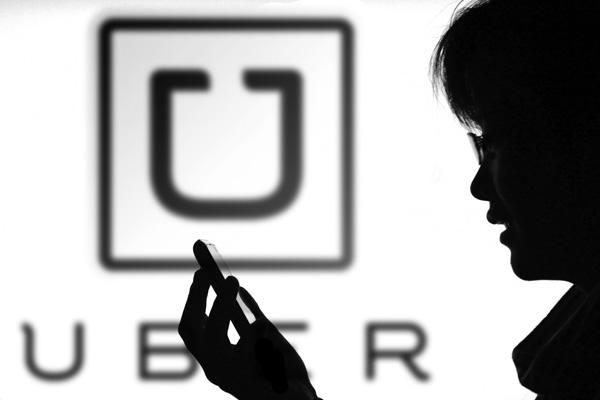 |
|
Uber, a car service developed in San Francisco, is used in all sorts of unconventional ways in China, such as finding a date and buying a house. [provided to china daily] |
The popular car service is being used in odd ways as it faces investigation in China, Fan feifei reports.
Twenty-nine-year-old Momo Zhao of Beijing sat in a car with a driver she did not know. The driver, who worked for the Uber car service network, soon began to proselytize. "Girl, do you believe in Jesus?" said the driver. "Do you know Jesus?"
Gesturing to a wooden cross hanging on the rearview mirror, the Uber driver told Zhao she had landed in "a gospel car." That was not what Zhao expected when she launched the car-calling app moments earlier to summon the Audi A4 she now sat in.
"The driver was like an aunt and more than 60 years old. We chatted for a while and then she began to ask me these questions. I was very surprised."
Zhao's experience is but one example of how people are using Uber, a San Francisco-based technology startup that connects riders with vetted private drivers at a variety of prices.
In China, the car service is no longer exclusively to get would-be passengers from one part of town to the next. People are using it in all sorts of unconventional ways. Hop into a Uber vehicle and a rider may hear a driver push his or her religious beliefs or a realtor attempt to sell them a house.
An employer might use Uber to interview a potential new hire. And of course, sex somehow always manages to enter the picture. There are riders, for instance, who turn to Uber in their quest for sexual partners.
Uber customers are using the service much like China's smash-hit flirting app Momo, with its approximately 180 million users.
"Mr Li", who owns two cars, became an Uber driver several months ago, and prefers to remain anonymous. He is the head of an Internet startup in Beijing. At about 12 pm, he drives to Zhongguancun, China's Silicon Valley, to pick up customers, most of whom are technicians working overtime. After he picked up six customers, he hired one of them for his company — as a technical director — following an interview in the car.
He boasts he also picks up beautiful girls at nightclubs on weekends, chatting with them and asking for their numbers.
Meanwhile in Shanghai, well-heeled women are applying to become Uber drivers in hopes of meeting their Mr Right.
This function has challenged app Momo, which allows users to connect with others based on their proximity to each other, the idea being that you can find people who are in the same pub, club and party.
Real estate companies have not been left behind in the Uber revolution. They also make use of Uber to sell houses. According to a report from Urban Express, a Hangzhou-based daily, a girl named "oyasumi" from Hangzhou, the capital city of Zhejiang province, bought a new house after talking with an Uber driver. She said on her Wechat, the online messaging application, that one morning she took a People's Uber to go to work and then learned the driver was a senior manager of a real estate company. She happened to be looking to buy a house and the driver recommended a house and even gave her a big discount.
The report said this matter might be linked to Zhejiang-based Greentown, a property developer, which arranged for 52 of its senior managers to participate in a three-day Uber driving program to sell properties to people using the car service.
China is not alone in the unconventional use of Uber. In the United States, Uber is used as well for commercial, business and social contacts. In Silicon Valley, for instance, Uber provides a service that connects potential investors with entrepreneurs. When a would-be businessperson calls a car, a Google Ventures representative will be in the car. The driver, who is also the potential investor, will allow seven minutes for the "passenger" to make a pitch, and then spend seven minutes giving the person feedback. Finally, the individual who just made the pitch will be driven home free of charge.
"As a startup, Uber's rapid expansion and huge amount of financing excite the nerves of entrepreneurs and investors endlessly," said Xu Kangming, a transportation expert. "Uber is a typical example of the ‘sharing economy', which is booming around the world."
Xu added that based on his observation, the reason Uber can generate different kinds of services lies in putting users' experience first.
"Uber doesn't call itself a car-summoning company, but a technology company," Xu said.
Yu Shan, who became an Uber driver in Beijing three weeks ago, told China Daily: "Uber has powerful incentives for drivers compared with other car-calling providers. The driver can be awarded two to three times the money than he or she actually earned during peak hours. They can be awarded 7,000 yuan ($1,128) at a time after having finished 70 deals each week."
He added: "I learned that drivers use Uber for different purposes, such as hiring employees and making friends, but the number is few. In my view, customers mainly choose Uber because its service is less expensive and it solves transportation problems."
Song Chunmei, 54, a doctor working at the central hospital in Yuncheng, Shanxi province, said it is acceptable that people use Uber for social contact purposes.
"If the customer does have a need to buy a house or to find a new job, and the Uber driver can offer them such opportunities, indeed, why not?"
She added that the activity is on a voluntary basis, providing much convenience and saving time and money for customers.
However, Uber's development in China isn't undisputed. In April and May, local authorities investigated Uber's Guangzhou and Chengdu offices, which were under suspicion of illegal operations, namely organizing private cars that did not possess the proper operating qualifications to be engaged in business activities.
On Jan 8, China's Ministry of Transport announced that every cab-hailing app company should abide by transportation market rules and ban private cars from operating on their platform, even though the ministry saw a "positive role" for apps that work with licensed operators in serving different transportation markets. But Uber's operation was not impacted much by the new regulations in China.
Uber's safety issue also has been of concern and its services have been banned in some other countries. India's telecom ministry on May 16 ordered network service providers to block car-calling app companies, including Uber and the domestic Ola Cabs.
Last December, an Indian woman accused an Uber driver of rape and then the New Deli government decreed that Uber and its local competitors were forbidden to do business.
However, the prohibition were not effectively implemented, and these companies have continued to operate as usual, even launching a kind of new service, UberAuto, to call motorized rickshaws, a popular vehicle among the middle class in India.
Uber's service has once been warned or halted in the United Kingdom, South Korea, Spain and the Netherlands.
Zhang Rui, an economics professor and member of the China Marketing Association, said Uber's expansion in China and the whole world reflected the contradiction and conflict between Internet technology and traditional regulations, innovation and supervision. As for Uber, he said the government should make changes and focus on "how to regulate it".
Contact the writer at fanfeifei@chinadaily.com.cn
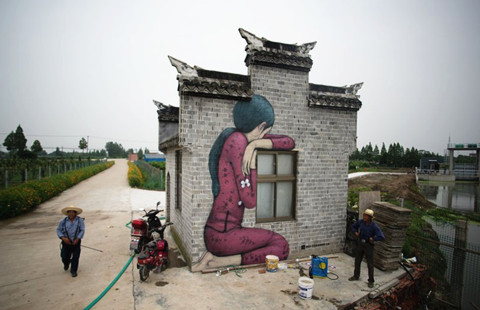
 French street artist finds inspiration in Shanghai village
French street artist finds inspiration in Shanghai village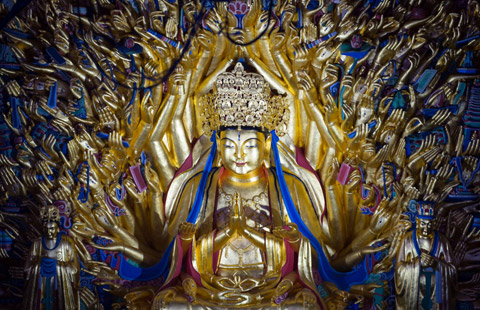
 China restores 800-year-old Buddha statue
China restores 800-year-old Buddha statue
 High fashion goes vertical
High fashion goes vertical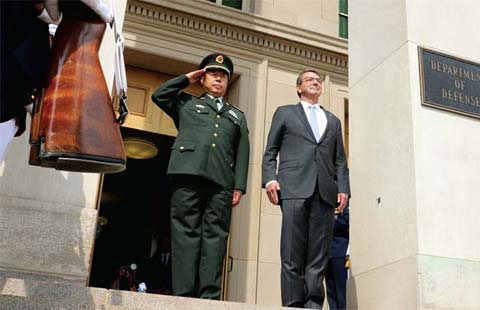
 Across America (June 5-11)
Across America (June 5-11) Warriors top Cavaliers to square up NBA Finals
Warriors top Cavaliers to square up NBA Finals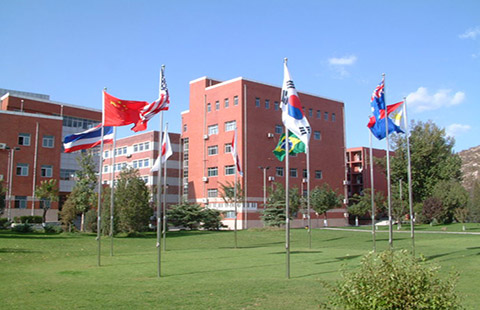
 Top 10 most expensive private schools in Beijing
Top 10 most expensive private schools in Beijing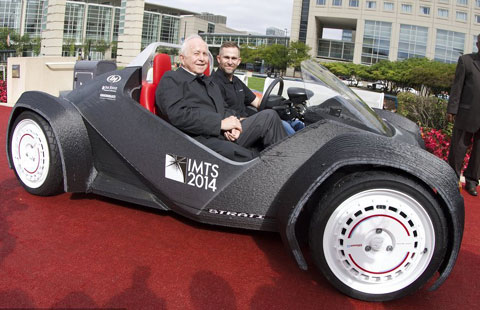
 Want new ear or car? Try 3-D printing
Want new ear or car? Try 3-D printing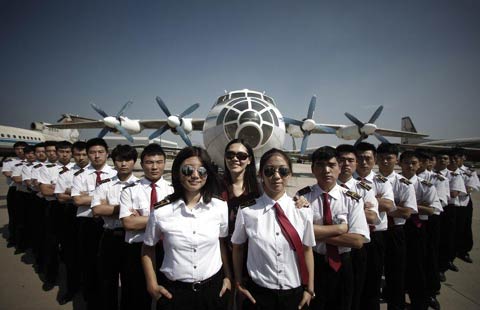
 Ten photos you don't wanna miss - June 12
Ten photos you don't wanna miss - June 12
Most Viewed
Editor's Picks

|

|

|

|

|

|
Today's Top News
US defense chief invited to visit China this year
Six state firms checked in graft battle
Uber plans to invest $1 billion in China
Fan meets veterans and families
Former security chief sentenced to life in prison
Top brass visit Pentagon
China committed to addressing climate change
Murdoch's sons to become CEO, co-chair at 21st Century Fox
US Weekly

|

|






